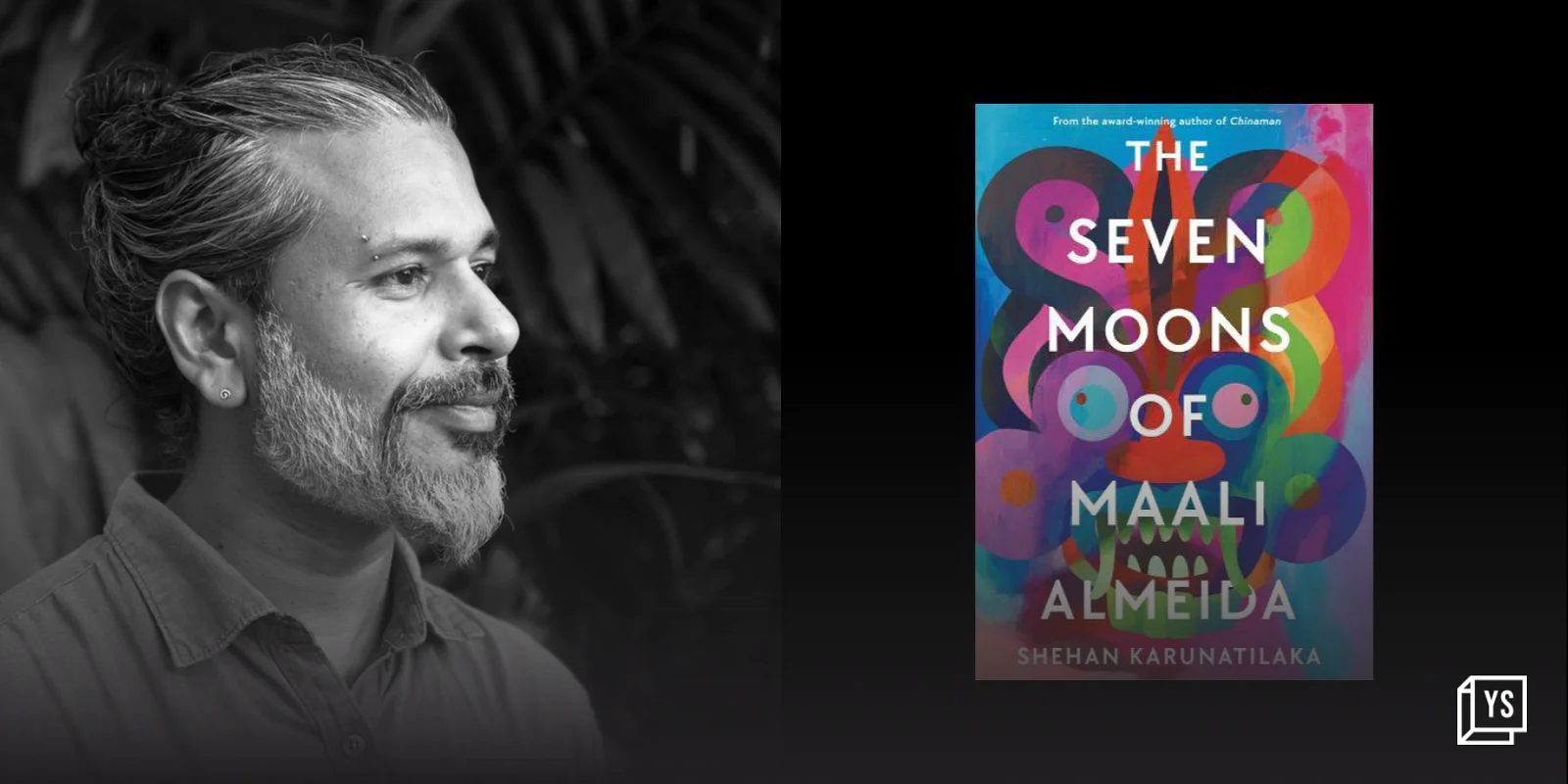
The Sri Lankan writer’s novel is about a photographer who wakes up dead, with a week to ask his friends to find his photos and expose the brutality of war.
Camilla, the Queen Consort, presented the prize, and the author said it had been “an honour and a privilege” to be on the shortlist.
Pop singer Dua Lipa was the star guest.
The other five authors on the shortlist receive £2,500 apiece as part of the renowned £50,000 prize for a single English-language novel published in the UK.
The writer said he decided in 2009 to write “a ghost story where the dead could offer their perspective” after the end of the Sri Lankan civil war, “when there was a raging debate over how many civilians died and whose fault it was”.
Head judge Neil MacGregor praised the “scope and the skill, the daring, the audacity and hilarity” of the novel, calling it an “afterlife noir” which “takes the reader on a rollercoaster journey through life and death”.
He said the judges’ decision had been unanimous, adding all of the shortlisted books were “all really about one question, and that is what’s the point of an individual life?”
Karunatilaka said as he accepted his prize: “My hope is that in the not too distant future… Sri Lanka has understood that these ideas of corruption and race-baiting and cronyism have not worked and will never work.
‘I have self-censored’
“I hope it’s in print in 10 years… if it is, I hope it’s written in a Sri Lanka that learns from its stories, and that Seven Moons will be in the fantasy section of the bookshop, next to the dragons, the unicorns and will not be mistaken for realism or political satire.”
He later added that he had “self-censored” a couple of short stories after author Salman Rushdie was stabbed in August, having faced years of death threats for his novel The Satanic Verses, which some Muslims see as blasphemous.
“I was in the process of publishing a collection of short stories when this incident happened, and I discovered a couple which I don’t think was offensive to any religion,” Karunatilaka said.
“But my wife said, can you not do that? You’ve got two young kids. This story is not that good. Just leave it out.”
He added that “this is something that hangs over all of us if we’re writing in South Asia, especially writing about politics or religion”.
The six shortlisted books were each read three times by the judges
Dua Lipa made a speech talking about her “passion” for reading, calling it “one of the most profound joys in the world”.
The singer-songwriter, who was the UK’s most-played artist of 2020 and recommends books she enjoys on social media, said she had read all six shortlisted books, and “absolutely loved it”.
She spoke about the importance of books in her life, telling the BBC’s Rebecca Jones that reading “helps me navigate through life and understand emotions and feelings, it’s my solace”.
The BBC questioned Dua Lipa’s participation to see if the Booker Prize Foundation’s director, Gaby Wood, was aiming to cater to younger people and she said: “Our sense is that the Booker Prize is a living thing. You need to try to make sure people think it’s for them.”
Analysis on ‘dazzling’ winning novel
by Rebecca Jones, arts correspondent
You can probably get an idea of what it would be like if you combined brownies, trifle, and doughnuts into one cake.
But Shehan Karunatilaka skillfully blends several genres, so the result is a rich, enjoyable tale rather than one that is overstuffed.
The slightly ludicrous tone is established in the book’s introduction. It begins in the afterlife, which is mundane and bureaucratic.
As Maali Almeida seeks to determine who killed him and why during the 1990s Sri Lankan civil war, the action then alternates between the underground and the outside world.
Shehan Karunatilaka says the book has been in his head for 10 years and goodness his brain must have been busy.
But he struggled to find an international publisher.
Winning the Booker will bring this dazzling novel, deservedly, to a much wider audience.
The Seven Moons of Maali is Karunatilaka’s second novel, having previously won awards including the Commonwealth Book Prize for his debut book Chinaman, which was called the “second best cricket book of all time” by cricketers’ almanac Wisden.
The 1975-born author has written songs, scripts, and stories that have appeared in Rolling Stone, GQ, and National Geographic. He has also worked as an advertising copywriter.
He is the second Sri Lankan-born author to win the prize, following Michael Ondaatje for The English Patient (1992) IMAGE SOURCE,DOMINC SANSONI
The other nominees were:
- Glory by NoViolet Bulawayo
- The Trees by Percival Everett
- Treacle Walker by Alan Garner
- Small Things Like These by Claire Keegan
- Oh William! by Elizabeth Strout
When asked by the BBC how many hours he had spent reading novels for the prize, MacGregor said: “I’ve been doing it almost every week since early December… It’s lots and lots of happy reading.”
The event was broadcast on BBC Radio 4’s Front Row and was announced on the Booker Prize live stream on YouTube.
